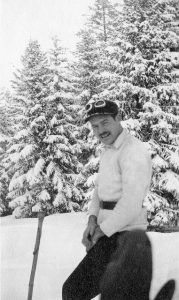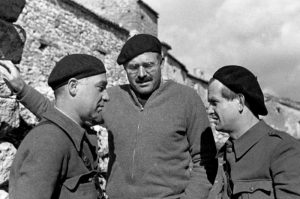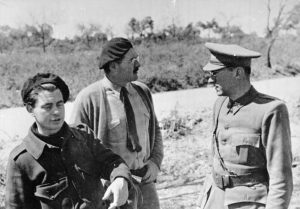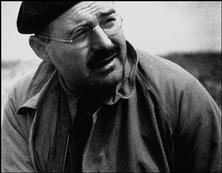What has led Jordan to abandon the comfortable life he was leading in America is the prospect of the Loyalist defenders of the Spanish Republic being overwhelmed by a fascist cabal relying on foreign aid. During the Spanish Civil War, America was neutral as a result of a bill President Roosevelt signed on May 1, 1937, banning the export of arms and ammunition to the warring parties in Spain. 
By contrast, neither Germany nor Italy saw any reason to remain neutral when they believed they had much to gain from helping a fascist ally. As historian Adam Hochschild notes in Spain Is in Our Hearts, his account of the Americans who fought in the Spanish Civil War, the German and Italian contributions to Franco were immense and gave both nations a chance to test out weapons they would use in World War II.
Some 19,000 German troops and instructors saw action in Spain or helped train Fascist troops, and nearly 80,000 Italian troops fought for Franco between the start of the Spanish Civil War and its conclusion. The Soviet Union, which for a period identified itself with the Loyalists, provided only limited aid by comparison.
For Hemingway, who made four trips to Spain to report on its Civil War for the North American Newspaper Alliance, Jordan was an admirable figure who reflected what was best about the 2,800 Americans who went to Spain to fight on the Loyalist side. Jordan knows that the Loyalist side he is on is capable of great cruelty. He is no fan of the Communists who are part of the Loyalist alliance. But Jordan sees the flaws in the fascists as so much greater than those of the Loyalists that he does not back away from the commitment he has made to the war.
In this commitment Jordan mirrors Hemingway, who in a 1937 letter described the Spanish Civil War as “the dress rehearsal for the inevitable European war.” Hemingway raised money in support of the Loyalist side, and with his future wife, the correspondent Martha Gellhorn, who travelled to Spain with him, he went to the White House for a showing of the pro-Loyalist film, The Spanish Earth, before President and Eleanor Roosevelt.

In the end Hemingway had to content himself with doing his best rather than getting the outcome in Spain that he wanted, and so finally must Robert Jordan. What makes Jordan admirable is what made McCain admirable—his unwillingness to sit on the sidelines and watch democracy be undermined.

In December 1937 Ernest Hemingway was covering the Loyalist assault on Teruel, the walled town in the bleak mountains of Southern Aragon, Gen. Franco was planning to use this corridor route to the Mediterranean thus seaparting Barcelona from Valencia and Madrid. Robert CAPA the photographer and Hemingway would with some colleagues drive daily to Teruel from Valencia and return each evening.
Valencia. Dec. 1937. Hemingway visiting the front line.
